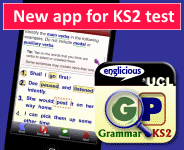Topic: Adjective
An adjective is a word which can go before a noun and modify its meaning (the ancient tower) or go after a linking verb like be (The tower is ancient).
Englicious contains many resources for English language in schools, but the vast majority of them require you to register and log in first. For more information, see What is Englicious?

